
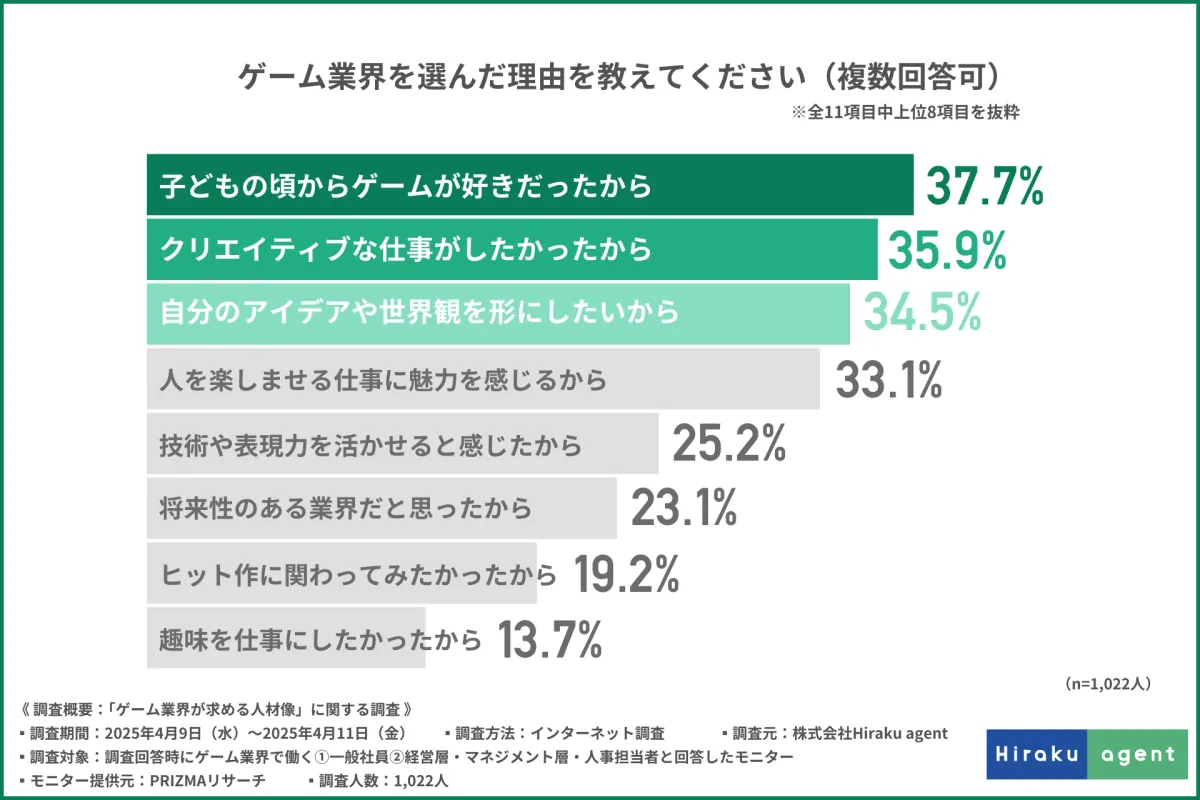
The Evolving Landscape of Talent in the Gaming Industry: A Look Towards the Future of Dual-Skill Professionals
Introduction
The gaming industry has reached a pivotal point where not only the ability to create is crucial, but the capability to nurture talent is equally important. Hiraku Agent, based in Shinagawa, Tokyo, has conducted a survey targeting both general employees working in the gaming industry and decision-makers in management and HR departments. This article explores the findings of the survey and discusses the evolving expectations for talent within the gaming sector.
Background of the Study
From April 9 to April 11, 2025, Hiraku Agent surveyed 1,022 respondents, comprising both ordinary employees and management personnel in various gaming-related companies. The survey aimed to identify the skills and characteristics essential for professionals in this rapidly changing industry. As technology and creative expression within games constantly evolve, the roles and expectations placed on these industry professionals are also transforming.
Reasons for Joining the Gaming Sector
When asked why they chose to work in the gaming industry, employees cited their childhood passion for games (37.7%) and a desire to engage in creative work (35.9%) as significant motivators. Additionally, 34.5% expressed their wish to realize their ideas and worldviews through gaming.
Key Values in Employment
The survey revealed a gap between the aspirations of general employees and the expectations of management. General employees prioritized challenges associated with new technologies (25.7%), team cohesion (25.3%), and stable working conditions (24.9%). On the other hand, management focused more on user feedback and evaluation (32.7%) alongside innovation and team dynamics. This divide suggests that while employees seek personal and team satisfaction, management tends to prioritize deliverables and audience reception.
The Balance Between Creation and Development
In practical terms, when asked about their current work focus, 43.8% of general employees indicated they primarily engage in creating new ideas.` Feedback from management showed a similar inclination towards valuing creativity over incremental development, spotlighting a common understanding that innovation is vital for maintaining competitive advantages in the industry.
The Dual Role of Talent
This inclination towards creativity points to an industry consensus around valuing the '0→1' capability—the ability to innovate—over merely enhancing existing products ('1→100'). However, 30% of employees also reported balancing both roles, underlining the necessity for hybrid professionals who can both develop new concepts and refine existing ones.
Essential Skills for Immediate Impact
Inquiring about immediate contributions, management indicated that technical skills (36.6%) are the leading factor in assessing new talent, closely followed by practical experience in game development (30.7%) and the ability to propose user-centric solutions (26.6%). This reveals a strong demand for talent that not only excels in technical aspects but can also empathetically understand the end-user experience.
The Future of Talent in Gaming
As the gaming landscape evolves, Hiraku Agent’s survey findings indicate a pressing need for personnel with global perspectives (40.9%), interdisciplinary knowledge (39.9%), and an understanding of both marketing and development (34.1%). Such traits are crucial for professionals looking to thrive in an increasingly competitive global market.
Conclusion
The findings from Hiraku Agent underline that the importance of both creative and nurturing capacities is becoming significantly intertwined in the gaming industry. The ability to innovate and develop must coexist for talent to drive progress in this rapidly evolving field. Companies that wish to thrive must foster environments that support this dual-skill paradigm, ensuring that they not only create but also cultivate talent capable of sustaining future successes.
To learn more about the complete survey findings, complete insights are available at Hiraku Agent’s official website.
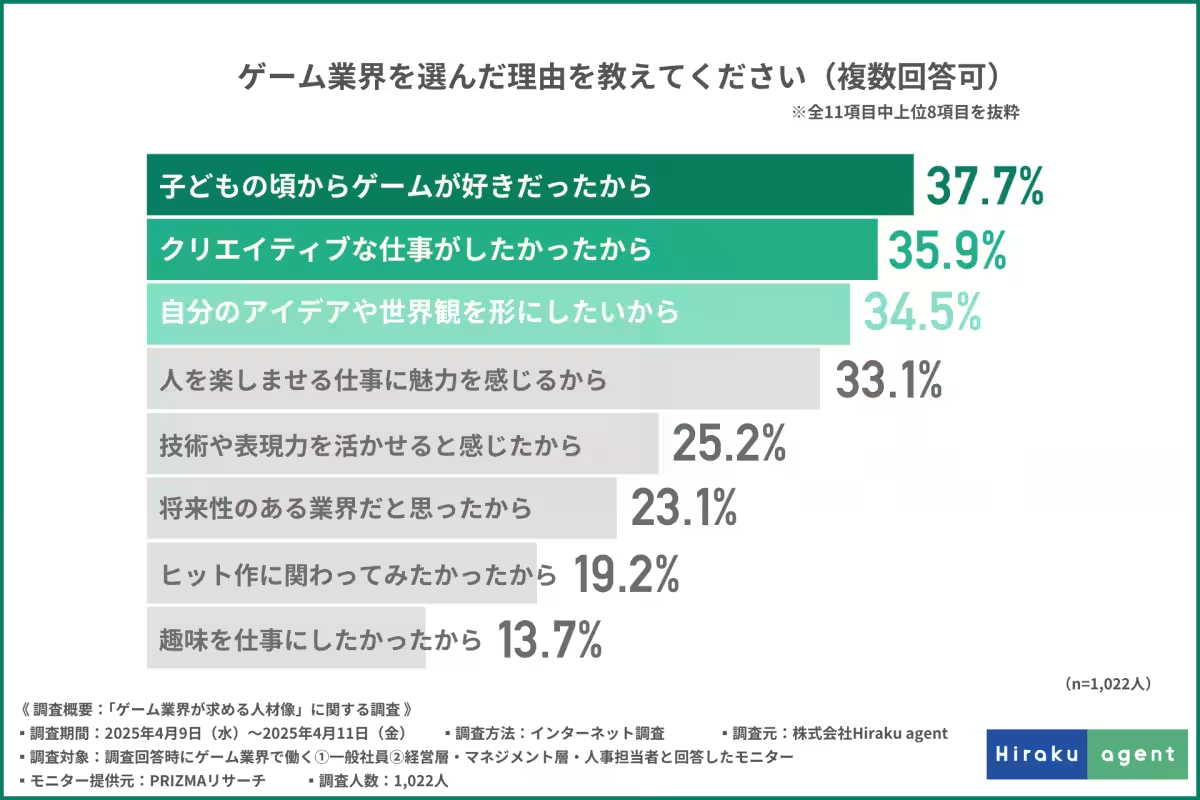
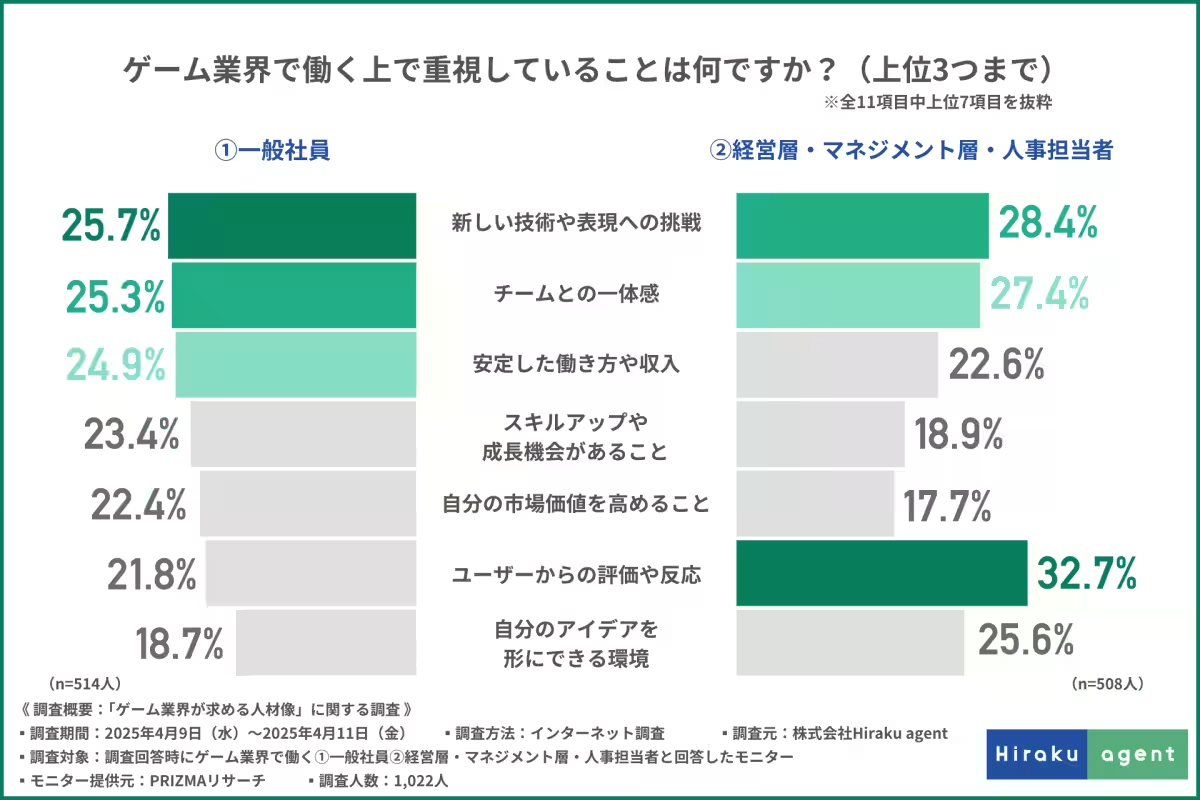
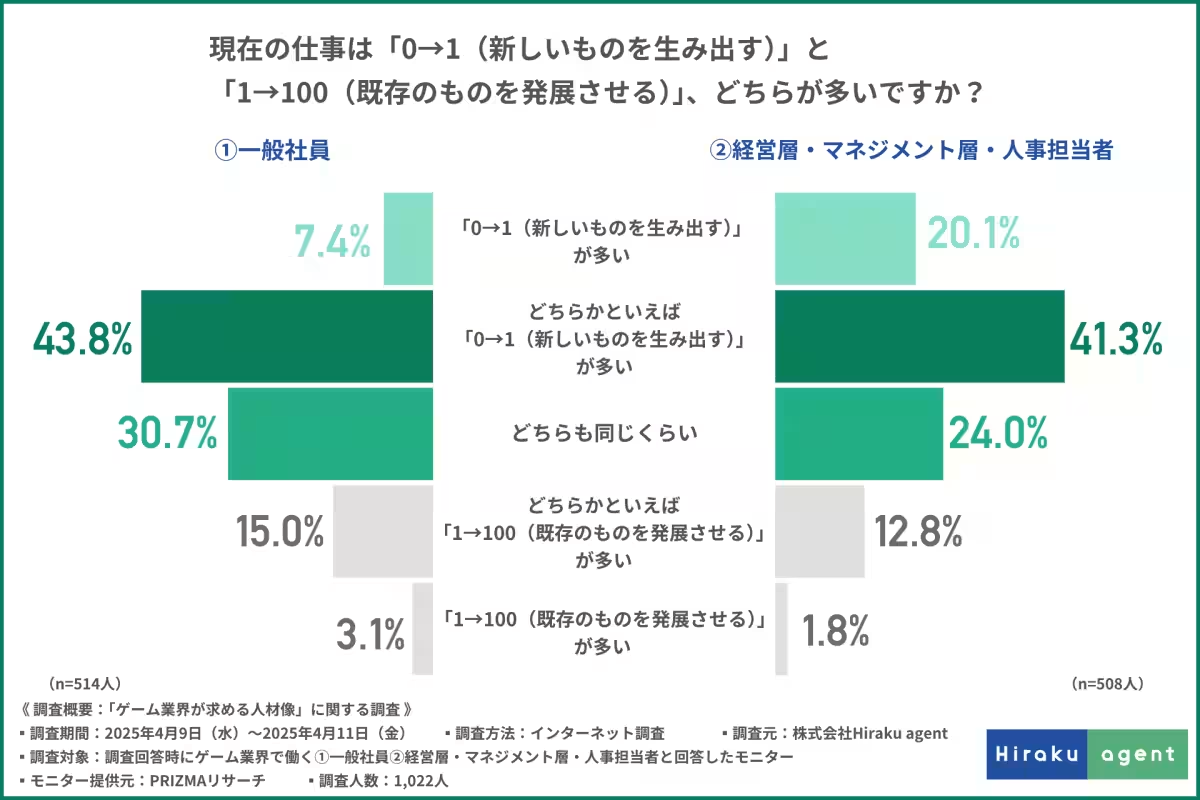
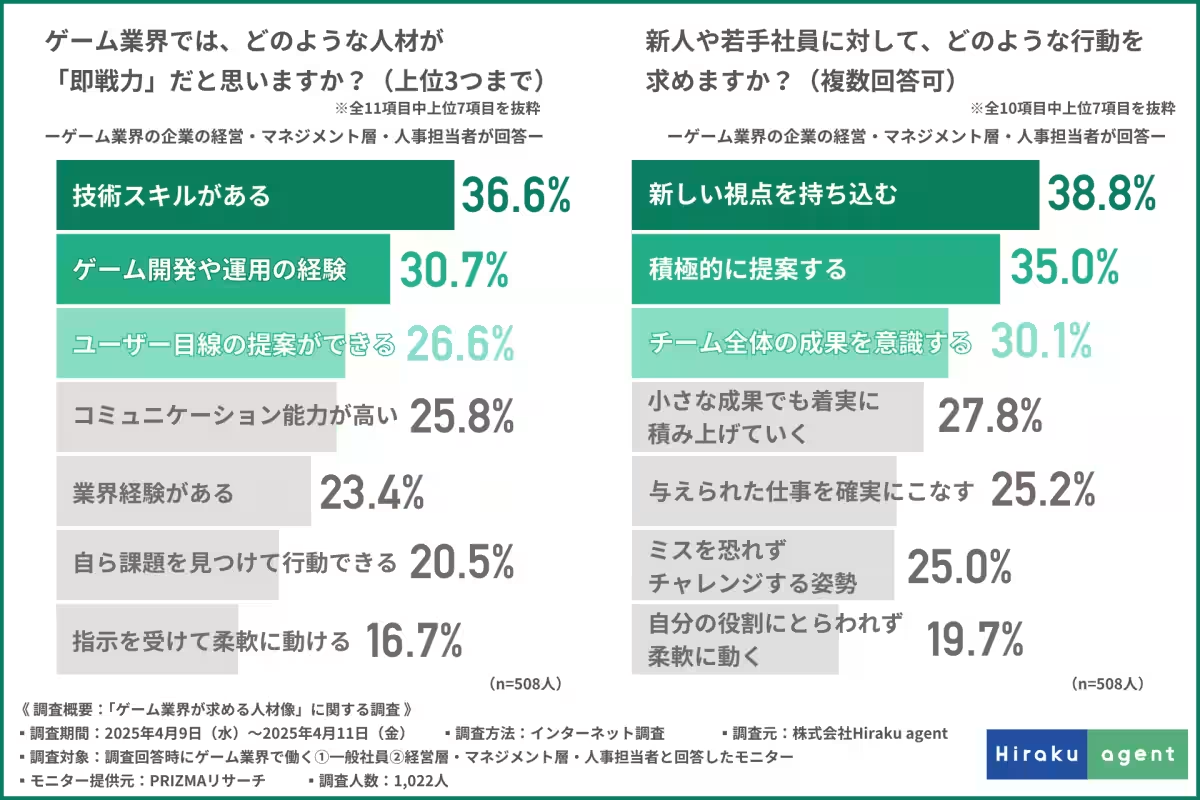
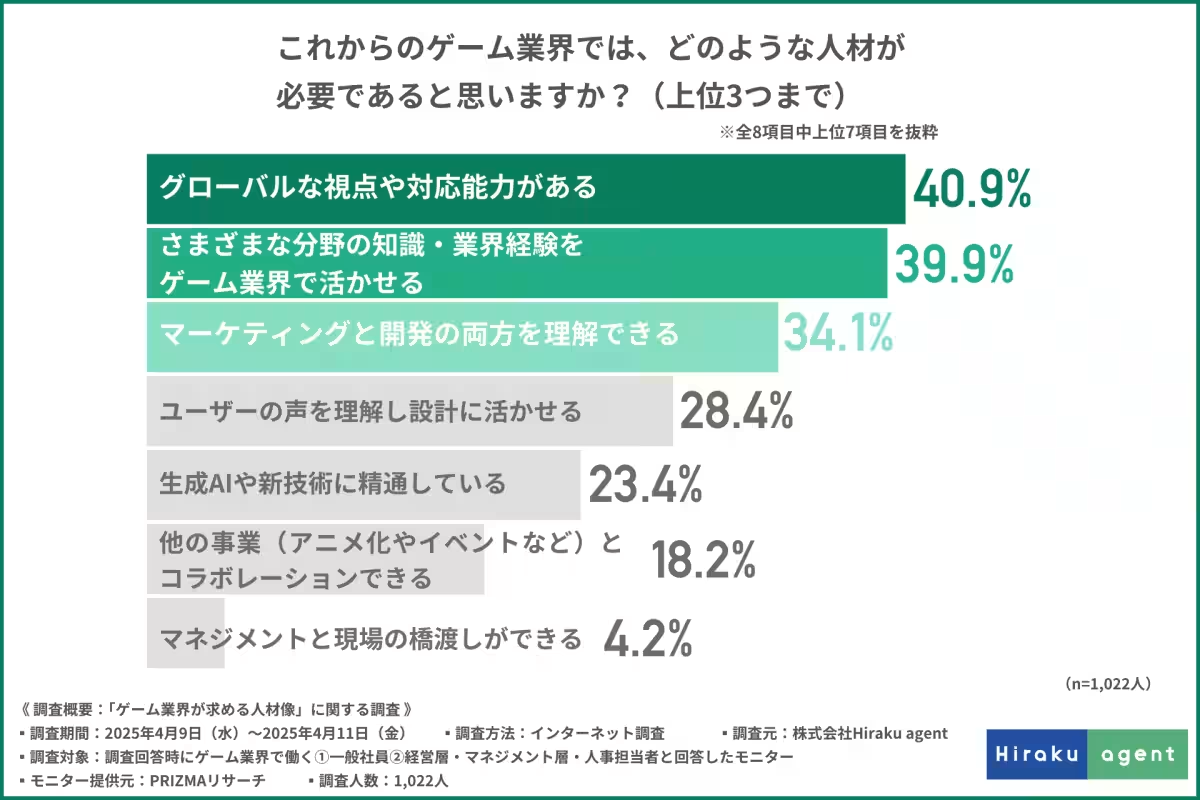

Topics People & Culture)

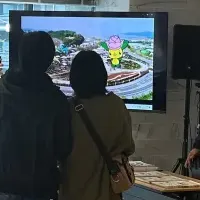






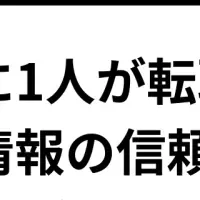

【About Using Articles】
You can freely use the title and article content by linking to the page where the article is posted.
※ Images cannot be used.
【About Links】
Links are free to use.